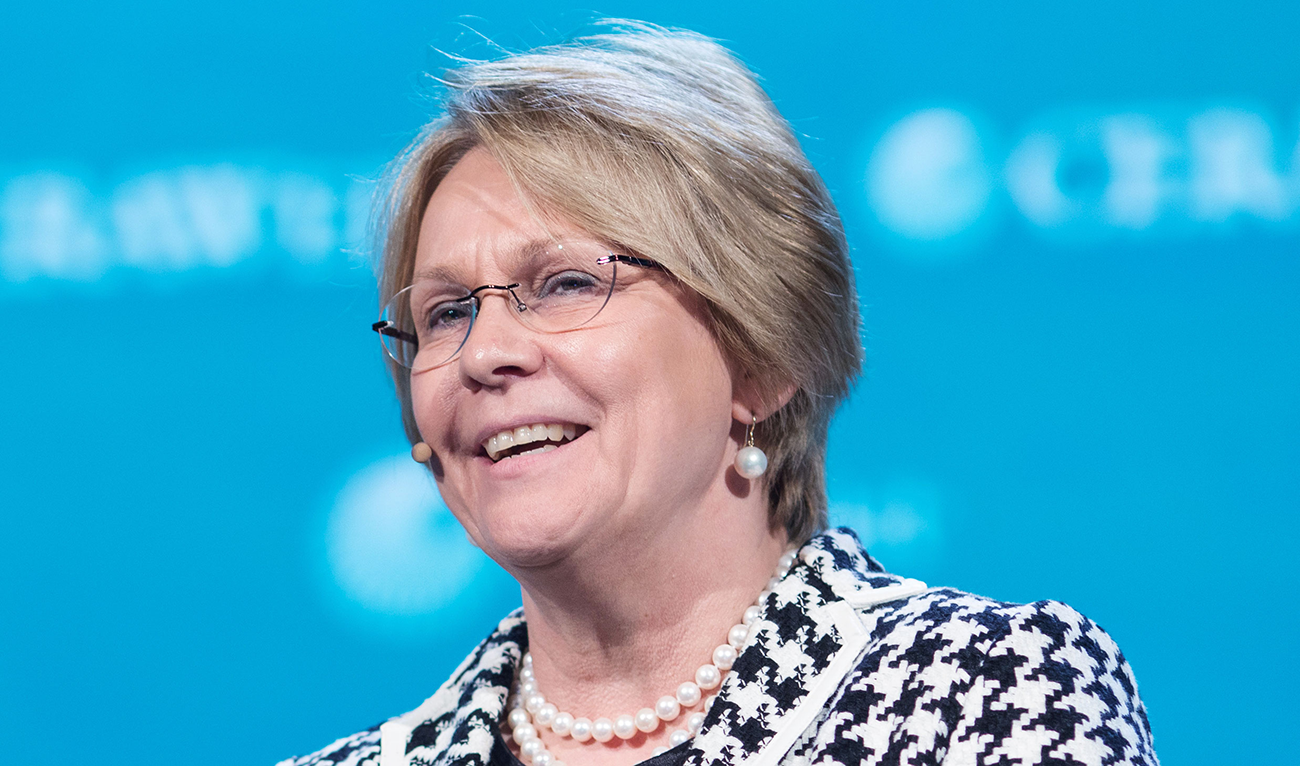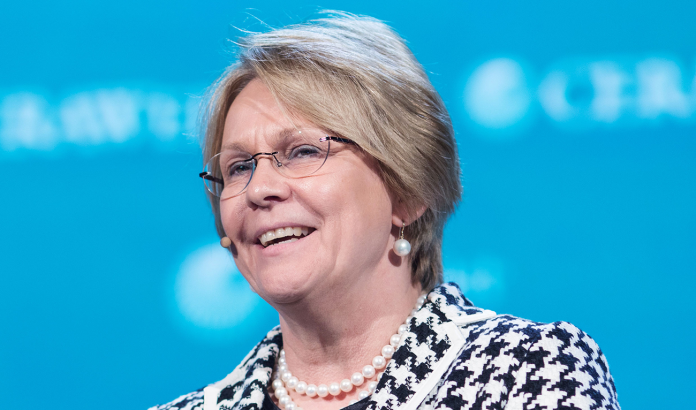DUBAI: Power blackouts in Texas and other parts of the US in the face of a record winter freeze showed the limitations of some renewable energy systems in extreme climate conditions, according to the head of one of the country’s leading energy companies.
Vicki Hollub, CEO of Occidental Petroleum, told policymakers at the virtual International Energy Forum in Riyadh that the outages were the result of winter conditions “unprecedented” for a century.
“Parts of the grid were just not prepared for it, they had not been weathered in properly. Texas has tried to be progressive regarding renewables, but this has shown that it is not just about putting renewable energy sources in place but being able to operate them when we do,” she said.
Earlier in the forum, Prince Abdul Aziz bin Salman, the Saudi energy minister, offered sympathy and support to states, including Texas, that have suffered several days of subzero temperatures.
“Our hearts and minds are with you, and as always Saudi Arabia does stand ready to extend any support we can send or render to our friends and family members,” he said.
The extreme weather has knocked out 40 percent of the Texas grid capacity, Hollub said.
Frozen oil and gas pipelines also have cut 2 million barrels of crude from US production, adding to the problems faced by US shale producers badly hit by the collapse in demand and oil prices during the pandemic.
“The pandemic had a major impact and showed the vulnerability of shale development when capital is not reinvested,” she said, adding that US oil output could not recover to its pre-pandemic level of 13 million barrels per day.
The US shale industry needs greater scale to match growth with the cost of infrastructure and new drilling operations, she said.
Occidental, the dominant operator in the US Permian shale fields, was focused on paying down the debt from its big acquisition of Anardarko Petroleum in 2019. “No matter how high the oil price goes we have got to keep sustainable capital. The way we’ll create wealth for shareholders is to cut costs,” she said.
Hollub said that the new breakeven “floor” in shale production was around the $40 a barrel level, and that any new developments above that price were “not feasible.”
West Texas Intermediate, the US crude benchmark, is trading at just over $60 per barrel.
She said that the new administration of President Joe Biden was being “very thoughtful” about how it regulated the energy industry and had endorsed the use of carbon capture technologies that were “very much needed.”
The energy industry needed to accelerate technology for direct carbon capture. “This is something that has to happen in the US and around the world. We will not meet the Paris Agreement goals without it,” she added.

Pipe dreams leave US energy firms caught in climate trapSaudi Energy Forum 2019: How Middle East stakeholders can remain competitive, secure

